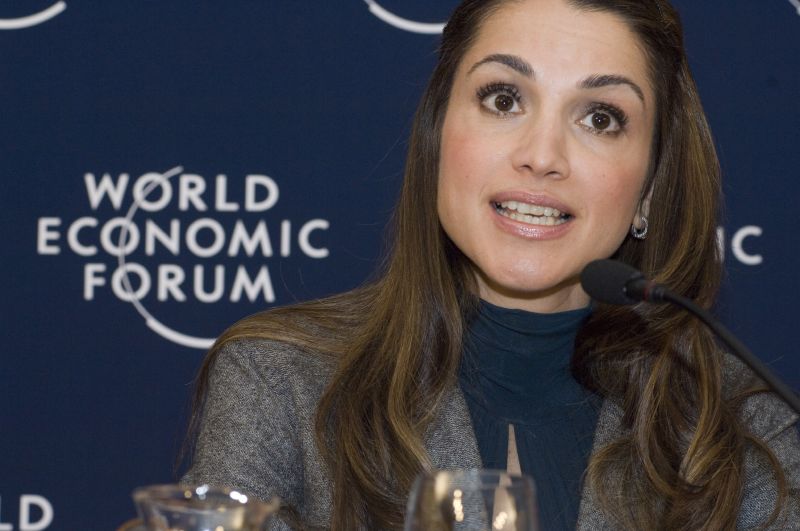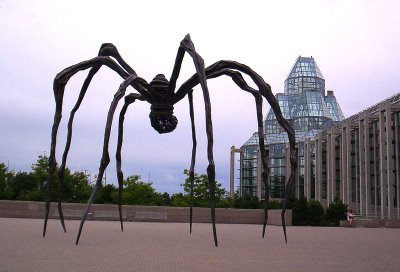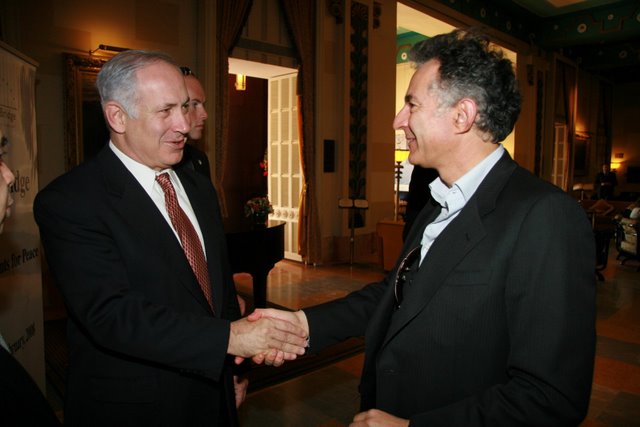Dan Ariely, the author of “Predictably Irrational ” and “The Upside of Irrationality ” stopped by Big Think’s offices yesterday to talk a little about the findings in his new […]
All Articles
There have been repeated attempts by activists to deliver desperately needed supplies to Gaza since the Israeli blockade, ably assisted by Egypt, turned this narrow strip of land – one […]
“Remarkable claims require remarkable proof.” — Carl Sagan The “multiverse” idea—once thought to be so crazy it only belonged on late night television—has now become the dominant theory in all of […]
How did writer, actor, and filmmaker John Cameron Mitchell come out? “I think I told a woman who was on top of me,” he jokes in his segment of Big […]
In the wake of the deadly flotilla boarding involving Israeli troops and resulting in multiple deaths, outrage has been expressed around the world. One of the strongest cries of outrage […]
“A woman has no peace as an artist until she proves over and over that she won’t be eliminated,” Louise Bourgeois once said. On Monday, this plane of existence eliminated […]
There was a time, in the now dim and distant past, when Israeli Commando actions were often heralded as brave and awe inspiring. Take for instance the no nonsense approach […]
While artificial intelligence has yet to realize its often dramatic promises, the development of brain science has led thinkers to prioritize the mind over the body as the center of the self.
As diagnosis of mental illness has changed with shifting cultural attitudes, now the term “nervous breakdown” is being reevaluated. Are you on the verge of “burnout syndrome”?
New technologies are turning smart phones into credit cards and cash registers, but as usual, there are trust issues and people are nervous about abandoning their wallets all together.
Leonard Pitts takes the pulse of those affected by the Gulf Oil spill and finds that many who once opposed big government maneuvers are now begging for its assistance.
“‘Democracy’ in the abstract misleads us. Living in a democracy—and it is lived experience that must be our theme—becomes a different thing in each generation,” begins Kenneth Minogue.
P.J. O’Rourke has a clever idea for reviving newspaper sales—the pre-obituary: “official notices that certain people aren’t dead with brief summaries of their lives indicating why we wish they were.”
A new book examines the lives of the Romantic poets in their well-intentioned but ultimately ambiguous morality. It is a case of life imitating art, writes Laura Miller for Slate.
“While taking a more relaxed attitude towards the pursuit of wealth may make sense as a personal philosophy, it is an uncertain guide to public policy,” says the Financial Times.
“When will our media reflect America on abortion?” asks William McGurn at The Wall Street Journal now that a Gallup poll has reported that half of America is pro-life.
Paul Krugman’s recommendation for more public spending is at odds with his own comparison of the U.S. to Japan where aggressive fiscal policy did not stimulate growth, says The New Republic.
THERE is an exhibit more ghastly and gruesome than the tatty stuffed Alsatian dog, awarded the Gustav Husak medal for sinking its teeth into a record number of attempted defectors […]
“Newspapers never made money on ‘news.’ Serious reporting, say from Afghanistan, has simply never paid its way. What paid for newspapers were the automotive sections, real-estate, home-and-garden, travel, or technology, […]
For me going to the mall is like traveling to a foreign country. But somehow I found myself in the Apple store on Saturday, playing with the IPad, the latest […]
An Amazon product review with ellipsis … like this … and a lot of extra punctuation??!? That is, like, so likely to be sincere. I totally mean that, except that […]
Should humans harmonize with nature of seek to manipulate and master it? These two polar views of man’s role on earth could determine whether we survive climate change, says Tikkun.
While Facebook’s current privacy setting have created an outcry, history is filled with examples of social norms conforming to technological developments, writes The Wall Street Journal.
Is China a friendly giant? Despite the fact that North Korea’s aggressive behavior threatens China, the Chinese are so far reluctant to support international action against its neighbor.
Only recently has vegetarianism become a diet that could survive natural selection, so could it be that vegetarians are smarter than the rest of us? Surprisingly strong evidence says yes.
Barry Estabrook says the common knowledge that locally grown food is the most sustainable form of agriculture is incomplete and should allow for regional distribution networks.
Ross Douthat asks why adoption is so difficult while going to a fertility clinic is so easy, especially when children of anonymous sperm donors often have deep psychological dilemmas.
Evolutionary biology may explain differences in mortality risks between genders, says Daniel Kruger at the University of Michigan; men take more risks to attract a mate, i.e. to have sex.
“Nowhere is it written that the United States can never decline,” says Richard Posner in his analysis of the economic problems befalling the E.U. and U.S. He and Gary Becker propose solutions.
In his new book, Clay Shirky says that what we do with our free time is changing: from passive TV watching to active online engagement, we are motivated by a desire for self-fulfillment.









